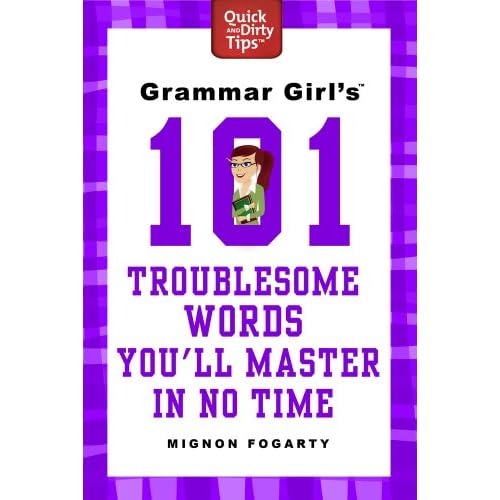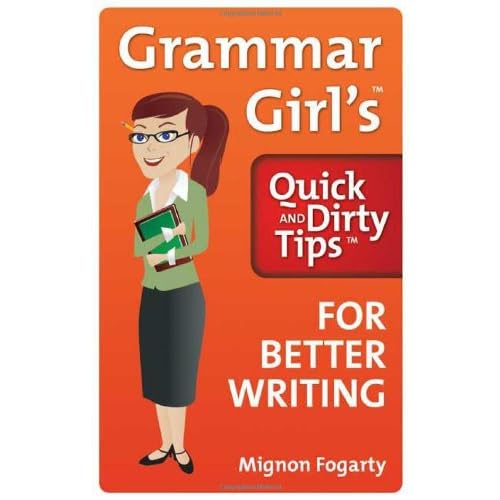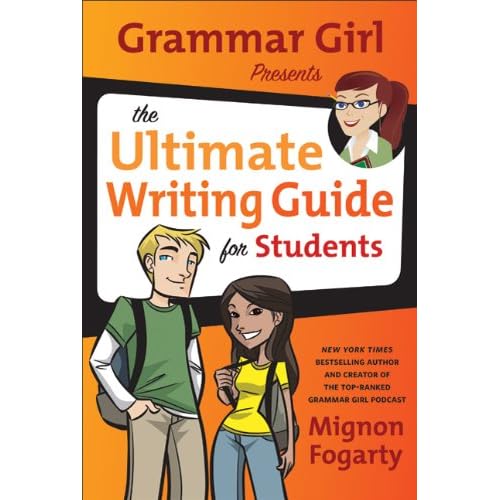
I've read a lot of style guides over the years (mostly for fun--I'm that kind of nerd) and I consider myself to have fairly good grammar. The problem is, I imagine everyone thinks they have good grammar and we can't all be right.
In the first season of the fantastic show, American Horror Story, Marcy the realtor tells the unfortunate couple who wants to sell their haunted house and thinks they've at least decorated it with style, "Everyone thinks they have good taste and everyone thinks they're funny. Most people are wrong."
That's how I feel about grammar. I assume I know all the rules, but then I find myself breaking the rules here and there (call it poetic license or internet casualness) until eventually it becomes a habit and I forget what the rules are in the first place. I'm sure there are several mistakes in the paragraph above, for example.
So perhaps I'll check a style guide, just to be sure. I may dust off a copy of Strunk & White or even flip through Eats, Shoots & Leaves to find out if it's all right to say alright (sometimes my spell check just doesn't know). The problem is, sometimes these experts disagree. How do I, a mere grammar civilian, know who to believe?
Enter Grammar Girl. What sets this style guide apart from others is the format. Each "troublesome word" is first presented as a query. Why is this word confusing? What's the debate? Using the example of "alright," Grammar Girl tells us that although most style guides...
Hit the jump for more Grammar Girl stuff!
and sticklers will insist that "all right" is the only acceptable option, the one-word alternative has been in use for decades and will only continue on. The book then gives some examples of the word in usage, quoting from a wide variety of high and low culture (including TV shows like Buffy the Vampire Slayer and Dexter...I suspect Mignon Fogarty would have approved of my American Horror Story reference) and then concludes with the most valuable feature: "What Should I Do?" In this section, the author gives practical advice about when and why you should choose one spelling, usage, phrase, etc., over another, and when you should just give up and abandon the phrase altogether.
I loved this book. I could read (and re-read) this book cover to cover. Some pages are great reminders for little grammar mistakes (or grammar misunderstandings, I like to think) that I make all the time, while others are just entertaining short essays that include quotes from TV shows that I haven't seen in a while. Yay!!
Disclaimer: I received a digital galley of this book free from the publisher from NetGalley.com. I was not obliged to write a favourable review, or even any review at all. The opinions expressed are strictly my own.
Some other books by Grammar Girl:

Grammar Girl's Quick and Dirty Tips For Better Writing

Grammar Girl's 101 Misused Words You'll Never Confuse Again

Grammar Girl Presents: The Ultimate Writing Guide for Students

Grammar Girl's 101 Words to Sound Smart

The Grammar Devotional: Daily Tips for Successful Writing from Grammar Girl
What are your biggest grammar mistakes? How about your biggest grammar pet peeves? Leave a comment below!
No comments:
Post a Comment